States with grand mission Azerbaijani and Kazakh leaders shaping regional balance
In less than a month, President of Azerbaijan Ilham Aliyev has followed an impressive itinerary: New York – Copenhagen – Gabala – Dushanbe – Sharm El-Sheikh – Astana. Except for Kazakhstan’s capital, which the head of state arrived in yesterday on a state visit, all other cities hosted major international summits shaping the global political and economic agenda, where President Aliyev delivered keynote speeches outlining the priorities of the modern world order and Azerbaijan’s place within it.
Undoubtedly, this lightning-fast schedule reflects the significant geopolitical weight of Azerbaijan. Particularly notable is that some of these visits were made at the invitation of the host countries. Yet even against this backdrop, the president’s visit to Astana carries a symbolic significance.
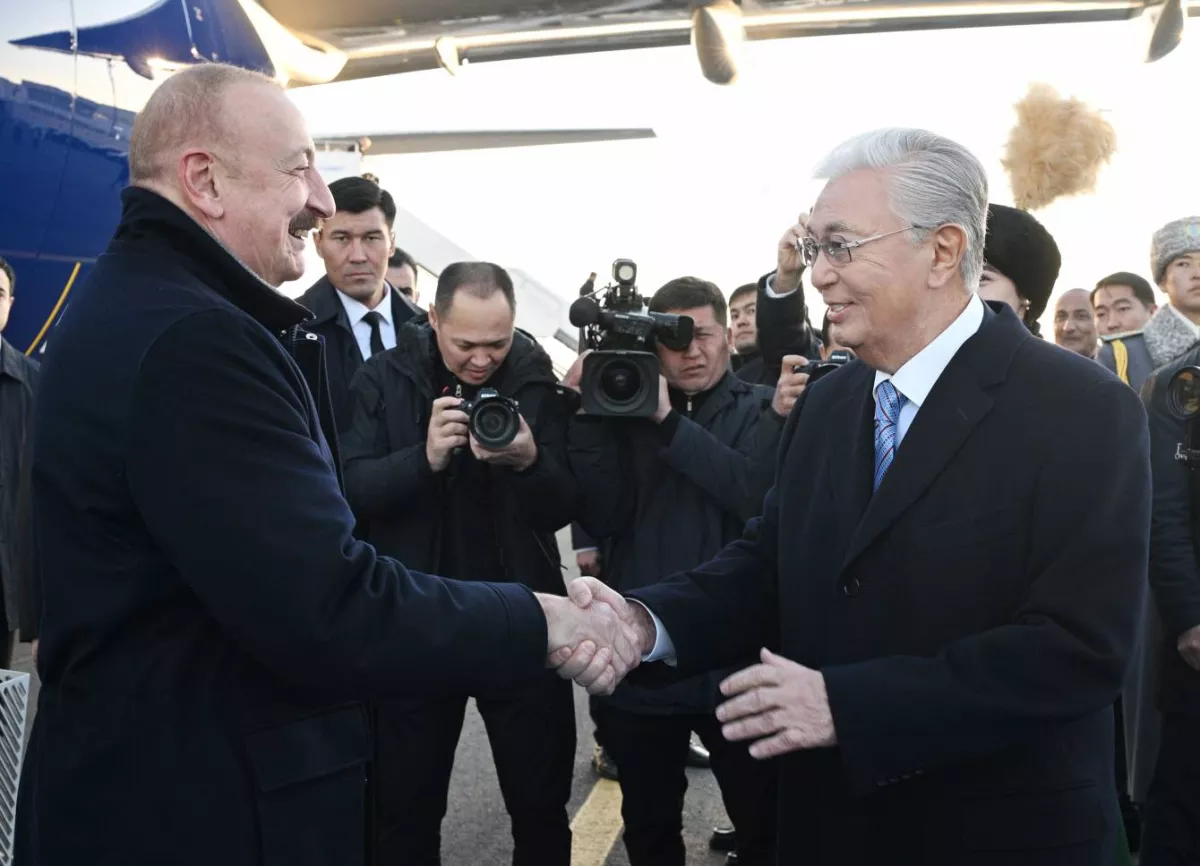
This is confirmed by President Ilham Aliyev’s meeting with Kazakh President Kassym-Jomart Tokayev.
We can expect crucial bilateral talks between the leaders of two medium-sized states, both of which form part of the puzzle of key contemporary global trends.
And while external, biased forces may not acknowledge it, the fact remains: the emerging new world order is bringing new centres of power to the forefront, among which Azerbaijan and Kazakhstan occupy a confident position, both as respected members of the increasingly influential Organization of Turkic States (OTS).
In an interview with Kazinform, given ahead of President Aliyev’s visit to Astana, the head of state highlighted the high level of political dialogue between the two countries, the rapid development of cooperation in transport, logistics, and the oil and gas sectors, prospects for joint work in the field of green energy, as well as initiatives within the framework of the Organization of Turkic States (OTS).
The interview, in fact, convincingly confirmed the special nature of relations between Baku and Astana, which was particularly evident when the president expressed gratitude to brotherly Kazakhstan for the construction of a Children’s Creativity Centre in liberated Fuzuli. This, along with other aspects of fruitful collaboration in political, trade and economic, investment, cultural, humanitarian, and other spheres, fits seamlessly within the Strategic Partnership and Allied Relations Agreement between the two countries, the 20th anniversary of which was celebrated this year.
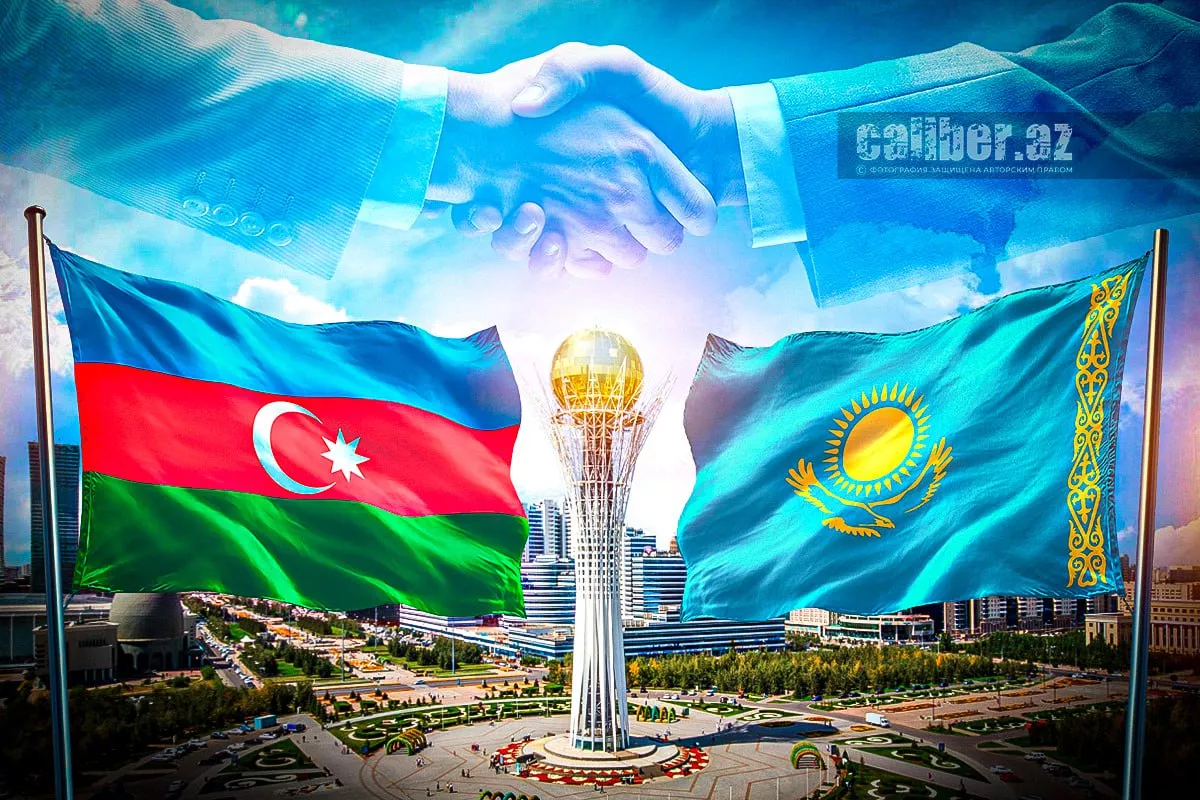
Bilateral trade has been growing at a geometric rate, driven both by the effective utilisation of the Trans-Caspian International Transport Route (TITR — the Middle Corridor) and the systematic modernisation of transport and logistics infrastructure. Alongside this is the strengthening of investment cooperation, carried out in parallel with the construction of underwater fibre-optic communication lines along the Caspian seabed between the two states, enhancing digital integration. Let us also recall the Kazakhstan and Azerbaijan Cultural Days held in recent years in both countries. Moreover, both nations bear a significant responsibility for promoting the Caspian Sea protection initiative on regional and international platforms.
A significant focus of the special relationship between Astana and Baku is also on the military dimension.
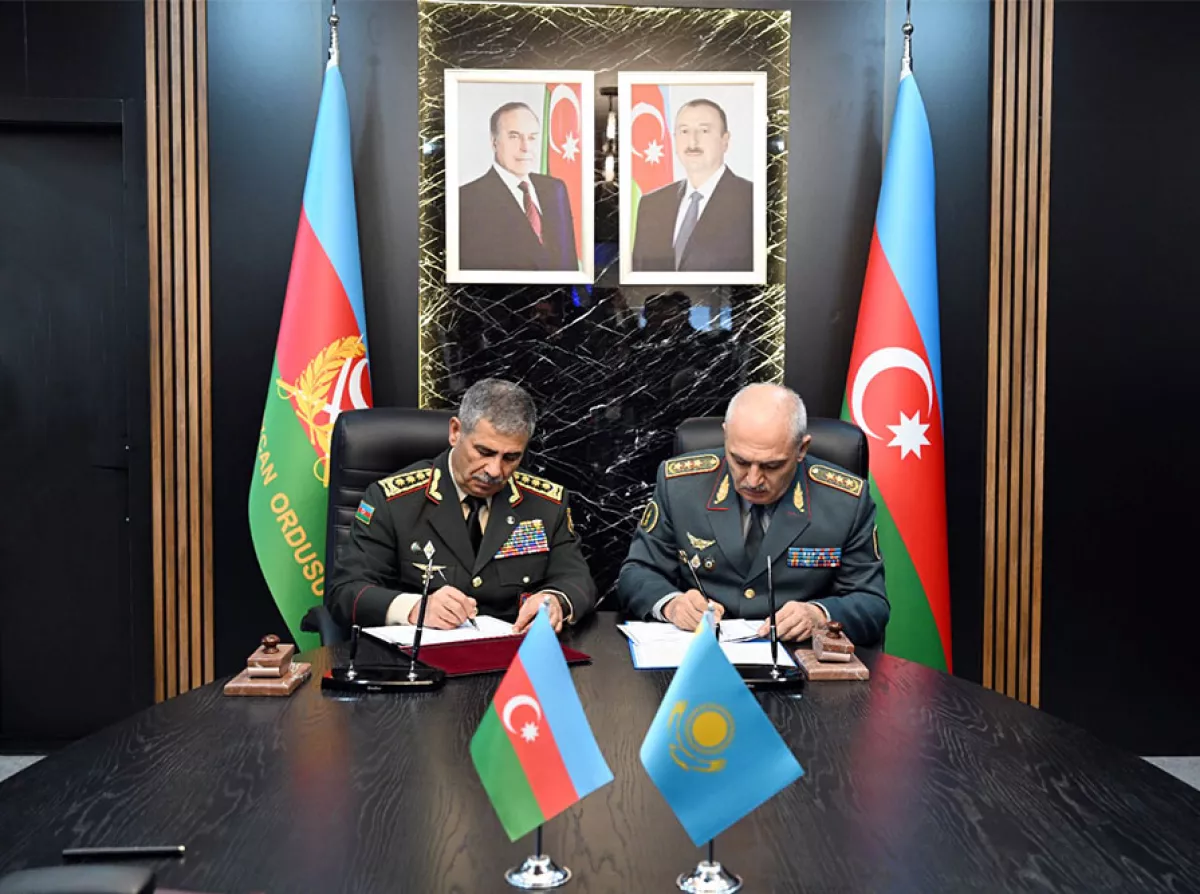
In the autumn of 2024, the defence ministers of the two countries signed a bilateral cooperation plan for 2025, as well as a memorandum between their national defence universities. At the beginning of 2025, the sides reviewed the state and prospects of cooperation in the military, military-technical, and military-educational spheres, thoroughly discussing issues of regional security.
Earlier this year, the Kazakh delegation was briefed on the Azerbaijani army’s operational capabilities programme, reforms in the military education system, and the implementation of the planning, programming, and budgeting system within defence planning. The guests also familiarised themselves with the application of NATO standards in Azerbaijan’s armed forces.
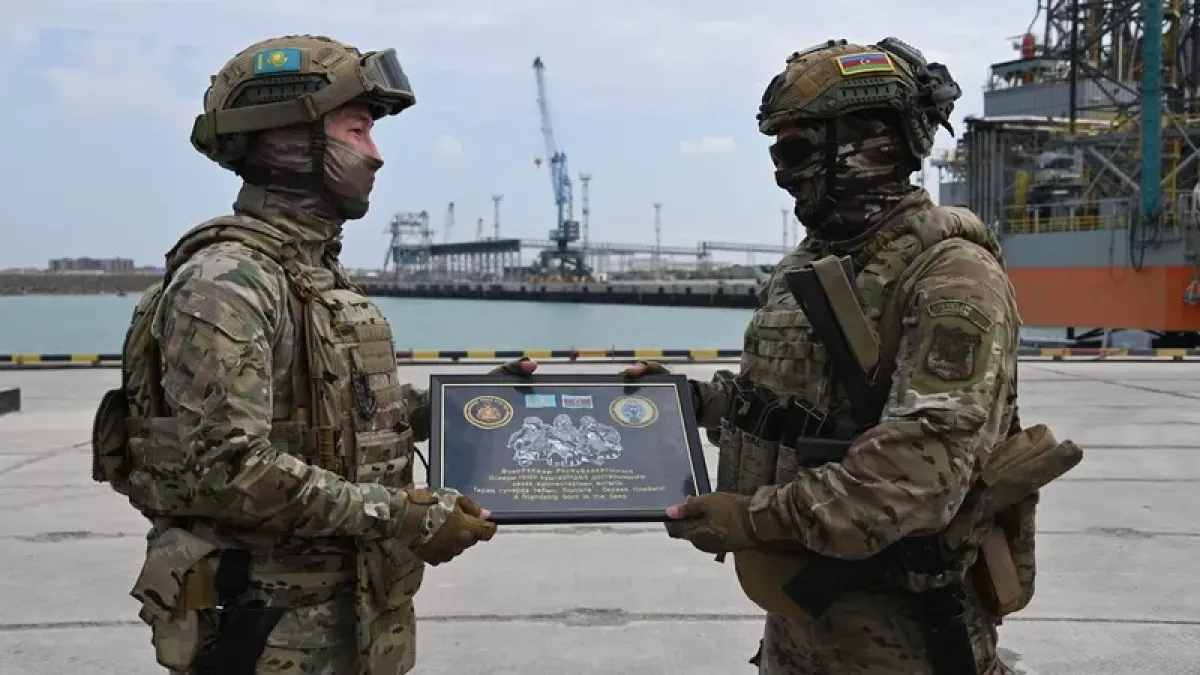
At the same time, in Kazakhstan’s maritime capital, Aktau, the two countries’ naval forces held the joint exercises “Caspian Breeze – 2025.”
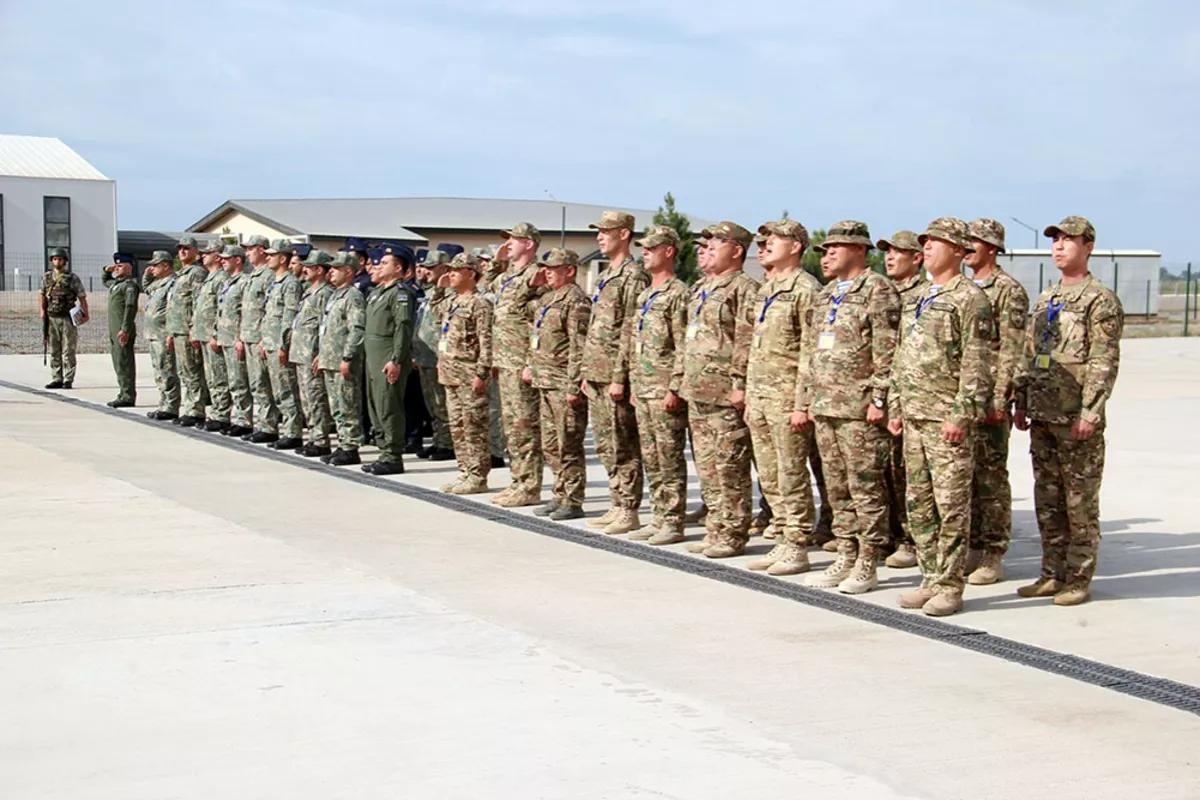
Subsequently, Azerbaijan hosted the joint air-tactical exercises “Tarlan – 2025,” conducted by the two states’ air forces. Last month, military specialists from both countries also met to discuss issues in the financial sphere.
The military dimension of bilateral relations is by no means accidental. Notably, in his speech at the 12th Summit of the OTS in Gabala, President Ilham Aliyev, recognising the broad cooperation among member states in military, defence, and security spheres, proposed hosting joint military exercises of OTS member states in Azerbaijan in 2026.
As the president emphasised, in today’s world, military strength is the primary factor in a country’s independence and territorial integrity.
At the same time, Baku and Astana share positions on key issues of the international agenda. Both countries advocate for the need to reform the United Nations, including the Security Council.
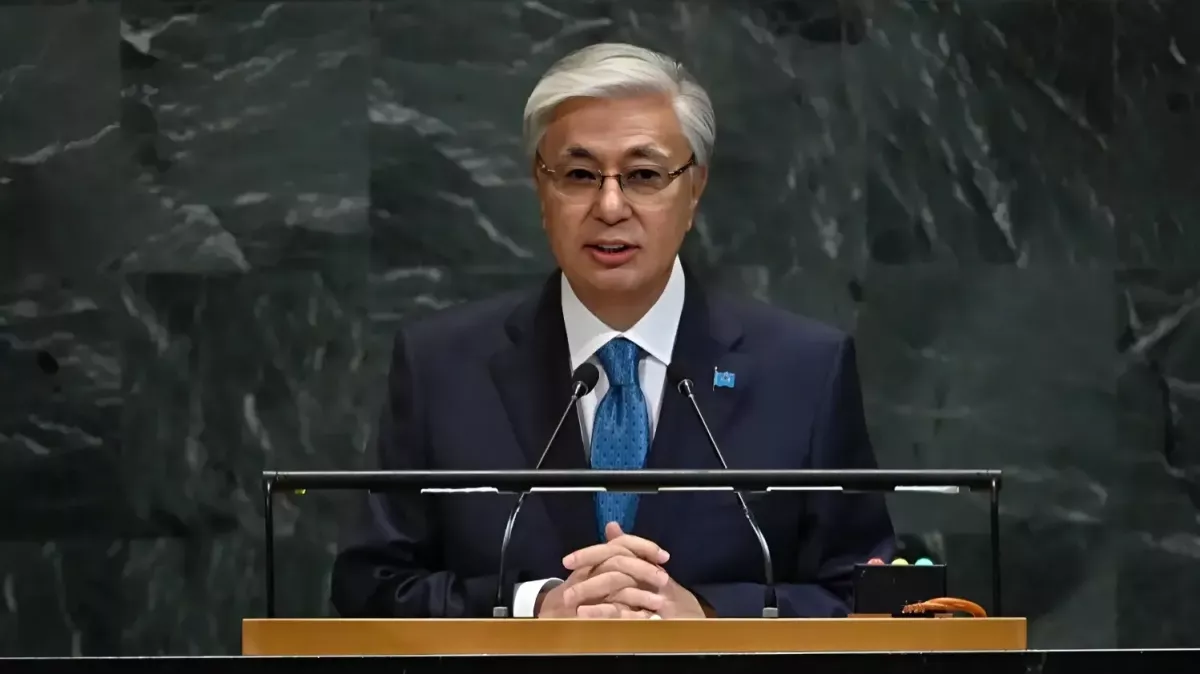
In his speech at the 80th session of the UN General Assembly, Tokayev emphasised the importance of ensuring representation in the Security Council for major countries in Asia, Africa, and Latin America on a rotational basis, as well as the need to strengthen the voices of responsible middle powers. President Aliyev has repeatedly expressed identical positions, advocating for similar rotational authority to be granted to countries representing the Non-Aligned Movement, the Organization of Islamic Cooperation, and several other bodies.
Following Kazakh President Kassym-Jomart Tokayev’s state visit to Azerbaijan in 2024, President Ilham Aliyev noted that the two countries are pursuing parallel courses, highlighting the genuine intent of both Baku and Astana to infuse bilateral relations with new substance.
The Kazakh leader, in turn, stated that the emphasis on strategic partnership is not merely a flattering phrase or diplomatic courtesy. According to him, the very essence of bilateral cooperation confirms the strategic nature of the interaction between the two countries.
Today, we can clearly see how the commitments made by the leaders of Azerbaijan and Kazakhstan last year are coming to fruition. In this light, it can be confidently stated that relations between Astana and Baku hold enormous potential across virtually all spheres—a fact that will undoubtedly become evident following President Ilham Aliyev’s state visit to brotherly Kazakhstan.








